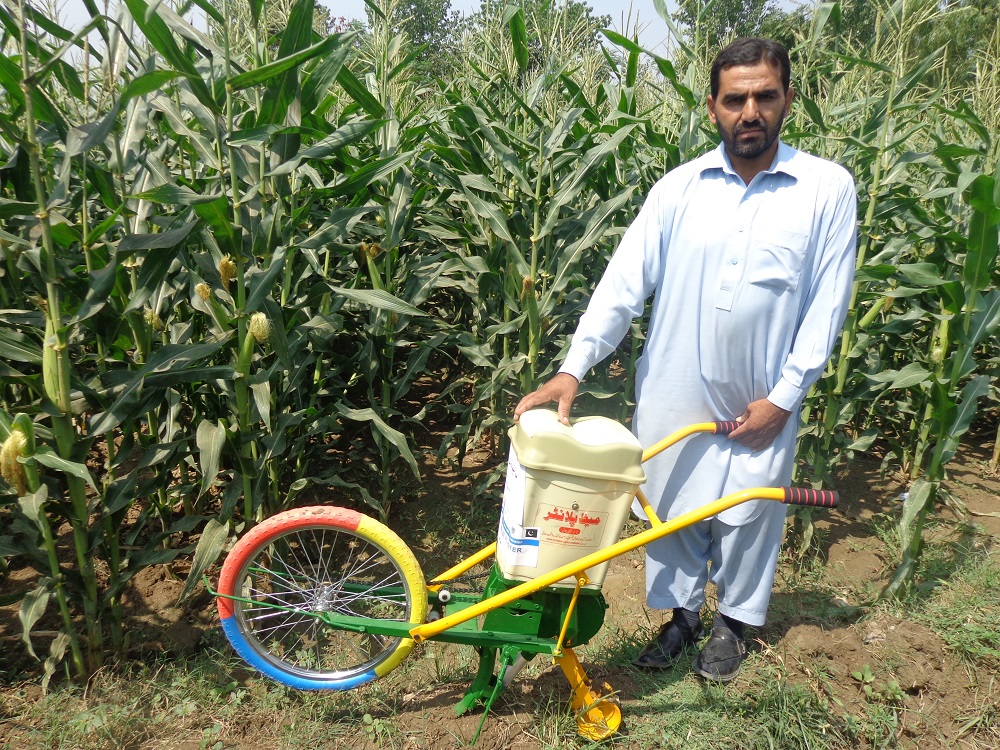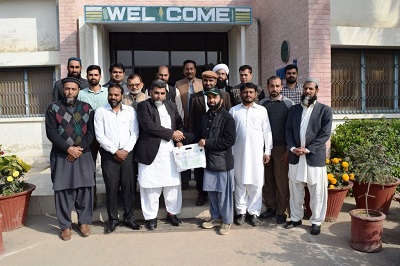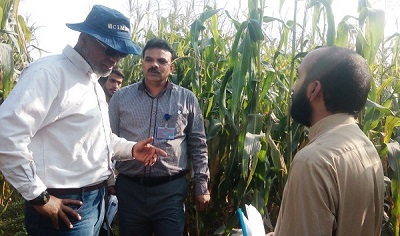Pakistan
For more information, contact CIMMYT’s Pakistan office.
Honoring the life and legacy of Fred Palmer
 Capacity development
Capacity development
Palmer made key contributions in applied science to fight hunger and improve livelihoods in the 20th Century.
Precision planters boost maize yields in Pakistan
 Innovations
Innovations
In the northwestern province of Pakistan, CIMMYT is helping connect farmers with precision planters to support higher maize yields and incomes.
Pakistan wheat seed makeover
 Nutrition, health and food security
Nutrition, health and food security
More productive, resilient varieties for thousands of farmers
Maize partners collaborate to maintain yield gain momentum in Pakistan
 Nutrition, health and food security
Nutrition, health and food security
Last year’s maize-growing season in Pakistan yielded a record-breaking six-million tons, decreasing the country’s dependence on imported maize seed and boosting local sales and exports of maize-based products.
CIMMYT helps national programs to enhance maize breeding efficiency in Pakistan
 Innovations
Innovations
Maize is Pakistan’s third important cereal following wheat and rice. However, Pakistan still imports more than 80 percent of the hybrid seeds, costing the country over $50 million annually and making retail price of hybrid seeds expensive.
Innovations for cross-continent collaborations
 Innovations
Innovations
Harinder Sidhu, Australian High Commissioner to India, visits Borlaug Institute for South Asia and climate-smart village.
USAID delegation visits CIMMYT Pakistan office
 Innovations
Innovations
A delegation of representatives from the USAID’s Mission for Economic Growth and Agriculture in Pakistan visited the National Agricultural Research Center to see the interventions by the Agricultural Innovation Program led by CIMMYT.
Maize biofortification fights malnutrition in Pakistan
 Nutrition, health and food security
Nutrition, health and food security
In the face of endemic malnutrition, researchers in Pakistan are turning to biofortified maize to combat vitamin A, zinc and protein deficiencies.
Cross-sector collaboration needed to boost wheat production in Pakistan
 Capacity development
Capacity development
Agronomy experts from across Pakistan gathered earlier this month to discuss progress in Pakistan since 2014 under the USAID funded Agricultural Innovation Program.
Public-private partnerships boost maize productivity in Pakistan
 Capacity development
Capacity development
A recently held traveling seminar brought together private and public seed partners in Pakistan to enhance maize production and productivity in order to meet current demand and plan for future needs.
Media highlight sustainable innovations in Pakistan during USAID tour
 Nutrition, health and food security
Nutrition, health and food security
Farmers in Pakistan benefit from new zinc-enriched high-yielding wheat
 Nutrition, health and food security
Nutrition, health and food security
Farmers in Pakistan are eagerly adopting a nutrient-enhanced wheat variety offering improved food security, higher incomes, health benefits and a delicious taste.
New planters promote environmentally-friendly farming in Pakistan
 Innovations
Innovations
Farmers and research partners are praising innovative, locally manufactured farm implements that support conservation agriculture in rice-wheat farming rotation in Pakistan.






